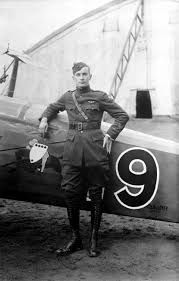At the end of every month, I scan newspapers throughout North Texas. I use a website, GenealogyBank.com, for most of my research. One hundred years ago, newspapers had small staffs so they borrowed materials from other towns. The Dallas, Fort Worth, and Corsicana newspapers were filled with interesting news from Greenville and Hunt County. The Commerce Journal has been digitized and can be found at Ancestry.com for the period from 1901 to 1977. Some issues are missing but it is a great source for my project.
For August 1917 everything I post will be from the Commerce Journal. I chose to do that because I wanted to see what local communities were reading and found interesting. The college had just been accepted as part of Texas college system with very stable financial support. Cotton and the boll weevil made news. But the largest amount of news items related to the war and its effect on local residents.
The Hart brothers who owned the Commerce Journal had been outspoken about the war in 1914, and how the United States should stay out and let the European royalty fight their own battles. But with the announcement of the Zimmerman Telegram and the Mexican Revolution conflict along the U.S.- Mexican border, the Harts changed their attitude.
The first U. S. military to land in France were aviators and airplane mechanics. J. D. Jernigin, Jr., wrote home with a scant amount of news. The location was simply “Somewhere in France.” His parents and other parents shared their sons’ letters in the Commerce Journal, as did most newspapers throughout the United States. Parents went to training bases to see their sons off. Mothers cried.
The Red Cross was organized in Commerce, duly wrapping bandages that would be used by the thousands. The ladies had several social events to send off local young men. Women found new employment as mechanics, elevator operators, and telephone operators. And in Commerce as in Greenville and most other towns in Texas, canning and preserving food for allies in Europe and to feed U. S. troops were hot items. The Board of Trade in Commerce offered a new National Canner with all the equipment to the first person willing to work it.
Once the United States declared war on the Axis countries, Woodrow Wilson hired George Creel, a publicity mogul to convince Americans the war was the right thing to do. Creel, in turn hired a cadre of reporters to fill American newspapers with propaganda. Part was Uncle Sam’s Thrift Thought for Today. I suspect few people today would be interested in trying the recipes. I know I wouldn’t.
Looking at World War I from a century later is unique. Americans were in for rough times ahead. Join me at my Facebook page for news from the war, the Influenza epidemic, and the Paris Peace Talks. Nothing was smooth sailing.

